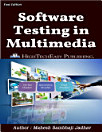Geographic Information Science: Third International Conference, GI Science 2004 Adelphi, MD, USA, October 20-23, 2004 Proceedings
Max J. Egenhofer · Christian Freksa · Harvey J. Miller
2005年1月 · Springer
電子書籍
348
ページ
report評価とレビューは確認済みではありません 詳細
この電子書籍について
This section gives a description of notions used throughout this study. Current achievements in developing action-centered ontologies are also discussed. 2.1 Ontologies In the context of information extraction and retrieval, different kinds of ontologies can be distinguished [15]: • Top-level ontologies describe very general concepts like space and time, not depending on a particular domain, • Domain ontologies and task ontologies describe the vocabulary related to a generic domain or kind of task, detailing the terms used in the top-level ontology, • Application ontologies describe the concepts that depend on the particular domain and task within a specific activity. Several investigations have been conducted to bring actions (tasks) to bear on - tologies. Among them are Chandrasekaran et al. [6] and Mizoguchi et al. [23] in the fields of AI and Knowledge Engineering. For the geospatial domain, Kuhn [21] and Raubal and Kuhn [26] have attempted to support human actions in ontologies for transportation. Acknowledging the importance of human actions in the geographic domain, a research workshop was held in 2002, bringing together experts from diff- ent disciplines to share the knowledge and work on this issue [1]. Camara [5], one of the workshop participants, has proposed that action-driven spatial ontologies are formed via category theory, for the case of emergency action plans.
この電子書籍を評価する
ご感想をお聞かせください。
読書情報
スマートフォンとタブレット
Android や iPad / iPhone 用の Google Play ブックス アプリをインストールしてください。このアプリがアカウントと自動的に同期するため、どこでもオンラインやオフラインで読むことができます。
ノートパソコンとデスクトップ パソコン
Google Play で購入したオーディブックは、パソコンのウェブブラウザで再生できます。
電子書籍リーダーなどのデバイス
Kobo 電子書籍リーダーなどの E Ink デバイスで読むには、ファイルをダウンロードしてデバイスに転送する必要があります。サポートされている電子書籍リーダーにファイルを転送する方法について詳しくは、ヘルプセンターをご覧ください。








